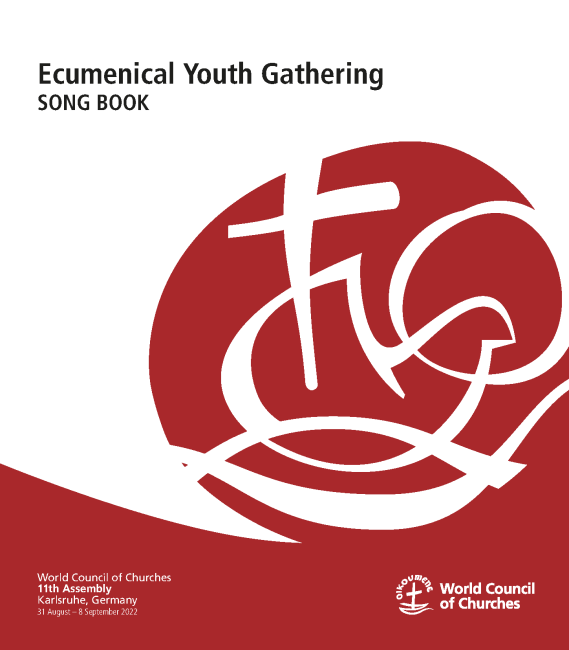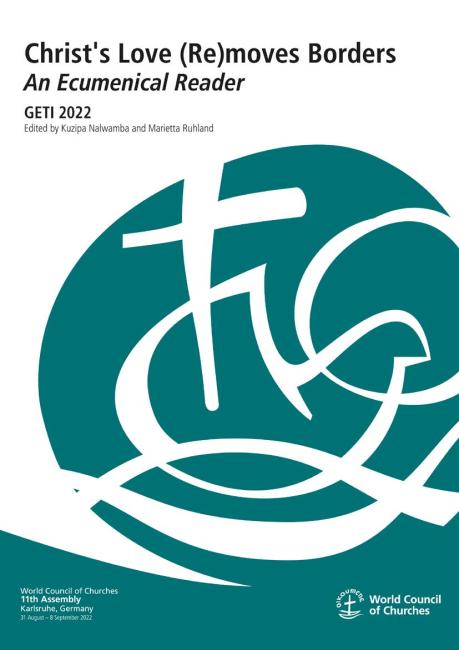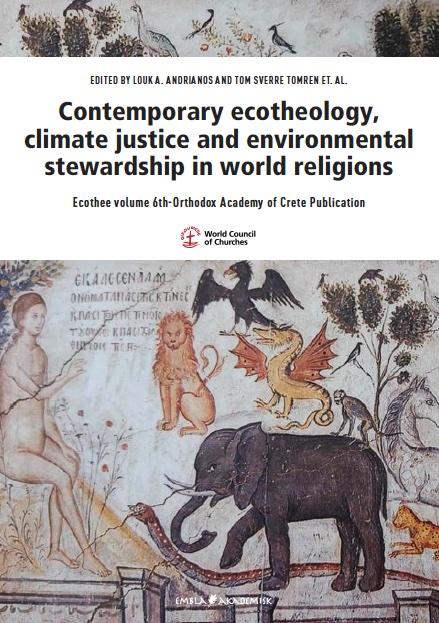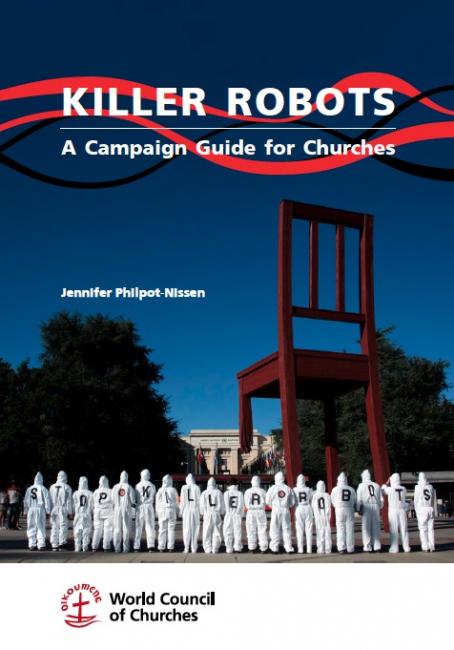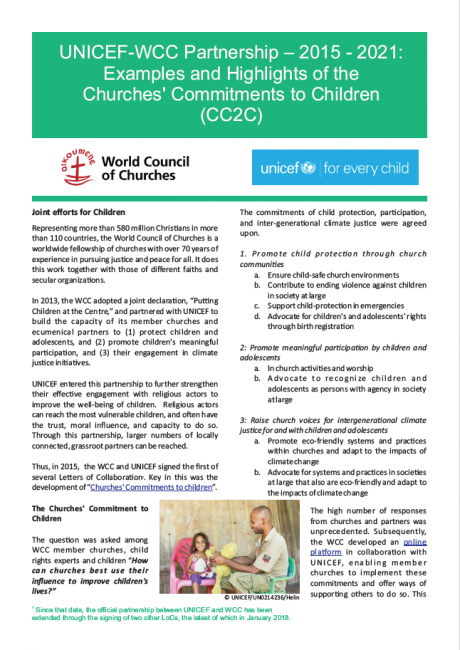Displaying 1 - 20 of 52
Compendium of Promising Practices of African Faith Community Interventions against Paediatric and Adolescent HIV
Executive Summary
23 March 2024
Ahead of Her Time
Pan-African Women of Faith and the Vision of Christian Unity, Mission, and Justice
01 November 2023
A Guide for Churches on the Prevention of Obstetric Fistula
26 October 2023
Recommended Practices to Combat HIV-Related Stigma
A Guidebook for Local Faith Communities
05 October 2023
Faith Sector Implementation of the Global AIDS Strategy
05 October 2023
HIV and AIDS Civil Society Networks and the Faith Sector
Lessons Learnt from Strategic Engagement in India, Dominican Republic, Indonesia, and Jamaica
31 January 2023
Strengthening Christian Perspectives on Human Dignity and Human Rights
Perspectives from an International Consultative Process
19 August 2022
Cooler Earth - Higher Benefits (Third Edition)
Actions by those who care about children, climate, and finance
16 August 2022
Ecumenical Youth Gathering Songbook
14 August 2022
Ecumenical International Youth Day 2022 Event Toolkit
Indigenous Youth and Land Rights Activism
14 August 2022
Called to Transformation - Ecumenical Diakonia
09 June 2022
Contemporary Ecotheology, Climate Justice and Environmental Stewardship in World Religions
Ecothee Volume 6th-Orthodox Academy of Crete Publication
19 December 2021
ZacTax Toolkit
24 November 2021











